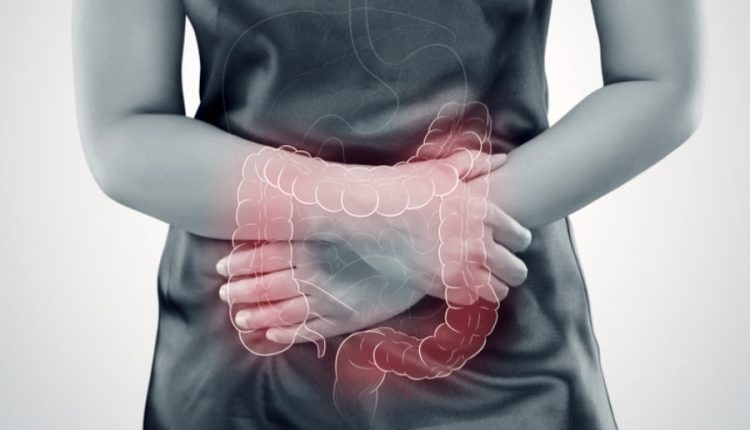
Ulcerative colitis: is there a cure?
There are no known drugs that can cure ulcerative colitis (UC): the only treatment is surgery to remove the entire length of the colon and rectum
This surgery may involve risks and is reserved for people who do not respond to medication.
Other treatments are available to significantly reduce the symptoms of the disease and help bring CU into long-term remission.
However, they will not cure the condition.
Will ulcerative colitis ever be cured?
Researchers are looking at other treatment options and potential cures for CU.
Two of the newest drugs for CU developed in the last two years include biosimilar drugs and Janus kinase (JAK) inhibitors.
Biosimilar drugs contain copies of the antibodies used in a common type of UC drug called biologics.
These antibodies help the body stop the production of certain proteins that can cause inflammation.
Severe cases of CU can be treated with a JAK inhibitor called tofacitinib (Xeljanz).
It helps block certain enzymes that can trigger inflammation.
Research is underway to determine whether other therapies, such as stem cell therapy and transplantation, can treat or cure CU.
What causes ulcerative colitis?
We aren’t quite sure what causes UC.
We used to think that diet and stress were possible causes, but now we think of these as triggers that can aggravate symptoms rather than acting as causes.
Immune system dysfunction may be a potential cause of UC.
An abnormal immune response against invading pathogens may cause damage to the gut.
Genes may also contribute to the development of UC, as the disease is more common in people with a family history of it.
How serious is ulcerative colitis?
UC can range from being a debilitating illness to causing fatal complications.
The symptoms can vary, depending upon the level of inflammation and site of the lesion.
The majority of people with UC tend to develop mild to moderate symptoms, such as:
- diarrhea
- rectal pain and bleeding
- abdominal pain
- fatigue
- urgency to defecate
In a small number of cases, people with UC may develop severe complications, such as major bleeding, colonic perforation, skin and eye issues, colonic malignancy, and thrombosis.
What are the most effective treatments for ulcerative colitis?
There are a variety of factors that can determine whether a specific medication can be effective at treating UC.
Here are the most common medications for UC:
- 5-amino salicylic acid (5-ASA). This is the first-line treatment for UC. Commonly used medications are sulfasalazine, mesalamine, balsalazide, and olsalazine. The particular 5-ASA medication prescribed to a person with UC depends on the area of the colon that’s affected by the condition.
- Corticosteroids. Corticosteroids, such as prednisone and budesonide, are another treatment for UC. These drugs cause significant side effects when used for longer periods, so they’re used only for moderate to severe illness.
- Immunomodulators. These medications minimize inflammation by controlling the immune response. Some common examples include cyclosporine, which is only used in short durations, as well as azathioprine and mercaptopurine. These two medications can cause side effects in the liver and require close monitoring of the blood by a physician.
- JAK inhibitors. The JAK inhibitor tofacitinib (Xeljanz) was approved recently for use in UC. It blocks an enzyme that can trigger inflammation.
- Biologics. Infliximab, adalimumab (Humira), and golimumab (Simponi) work by neutralizing proteins produced by the immune system. Another biologic, vedolizumab (Entyvio), targets the gut and helps reduce inflammation.
What happens if UC is left untreated?
Untreated UC may progress over time, potentially becoming difficult to treat later on.
Treating UC can help minimize the risk of developing serious complications, including:
- severe bleeding
- perforation of the colon
- vision loss
- skin lesions
- dilation of the colon
- colorectal cancer
- thrombosis
When should you go to the hospital for UC?
UC can lead to life threatening complications. Warning signs that you may need to go to the hospital include:
- severe abdominal pain
- high fever
- abdominal distension
- dehydration
- an abrupt reduction in the frequency of bowel movements
This may require early hospital admission and treatment with fluids and electrolytes, along with nutritional support, if required.
What is the outlook for someone with ulcerative colitis?
Ulcerative colitis can be managed with treatment. It generally won’t alter the life expectancy of most people.
Most people with UC experience acute flares of symptoms during their lifetime.
But with treatment, the disease can enter remission, during which symptoms go away.
Remission may last for weeks or even years.
The longer the period of remission, the better a person’s general health becomes.
Read Also:
Emergency Live Even More…Live: Download The New Free App Of Your Newspaper For IOS And Android
Wales’ Bowel Surgery Death Rate ‘Higher Than Expected’
Irritable Bowel Syndrome (IBS): A Benign Condition To Keep Under Control
Colitis And Irritable Bowel Syndrome: What Is The Difference And How To Distinguish Between Them?



